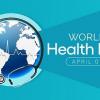News
Displaying Results 1 - 12 of 12
How to develop projects, initiatives and ideas to build resilient energy systems in Central Asia? This was the focus of the 2nd Almaty Energy Forum, held from 14-16 November at the Kazakh-British Technical University. The Forum, a joint effort of four UN organizations – Economic Commission for…
The extreme heat and drought that the region experienced this summer is a bleak reminder that current commitments under the Paris Agreement and those made last year at COP26 are nowhere near what is needed to limit global warming to below 1.5°C. Inaction is a policy choice that will lead to greater…
Building resilient energy systems to address the ongoing global energy crisis will be top of the agenda of the upcoming Sustainable Energy Week (19-23 September). Representatives from UNECE's 56 member States will discuss how to ensure energy for optimal social, economic, and environmental…
In 2022, international cooperation in energy and critical raw materials is high on the agenda. Optimal use of critical raw materials, for which demand is set to continue rising, will be crucial in delivering the green transition in energy, mobility and the digital world.
This will be in the…
As guests of the planet, we human beings can thrive only if our host environment is thriving. We are strongly connected to it, more than we probably understand and more than we probably dare to admit.
Conversely, the ways humans treat the environment has clear negative effects on our health and…
COP26 was a positive step forward in the fight against climate change, but as the UN Secretary General pointed out in his comments: “it is not enough. We must accelerate climate action to keep alive the goal of limiting the global temperature rise to 1.5 degrees.” The compromise deal reflects the…
Over the last two weeks at COP 26, governments, the private sector and a wide range of actors have unveiled plans for climate action in crucial areas ranging from methane, to forests, finance, fashion, transport and far beyond. As US Special Presidential Envoy for Climate John Kerry put it in our…
In 2014, Austria and France launched The Partnership on Cycling Promotion under the Transport, Health and Environment Pan-European Programme (THE PEP), a programme jointly serviced by UNECE (bringing together its work on environment and sustainable transport) and the WHO Regional Office for Europe…
The diesel scandal in Europe has made us aware of the potential trade-offs between different fields of policy. While trying to reduce greenhouse gas emissions, policies to subsidize diesel cars were made without taking into account that diesel emissions have serious negative impacts on air quality…
Marking two hundred years since the invention of the Draisine, an ancestor of the bicycle, in Mannheim, Germany, the city will host two events this month on the theme of active mobility: the International Cycling Conference and a Transport, Health and Environment Pan-European Programme (THE PEP)…
While others debate the merits of green economy, the Transport, Health and Environment Pan-European Programme (THE PEP) demonstrated once again its hands-on approach by hosting a green economy discussion that focused not on whether to implement green economy, but how to do it.
The…
Policies that support cycling not only contribute to the fight against air pollution and greenhouse gases and boost health, but can also go a long way in creating jobs as part of the transition to a Green Economy, participants heard at a side event in Batumi.
An estimated 435,000…








